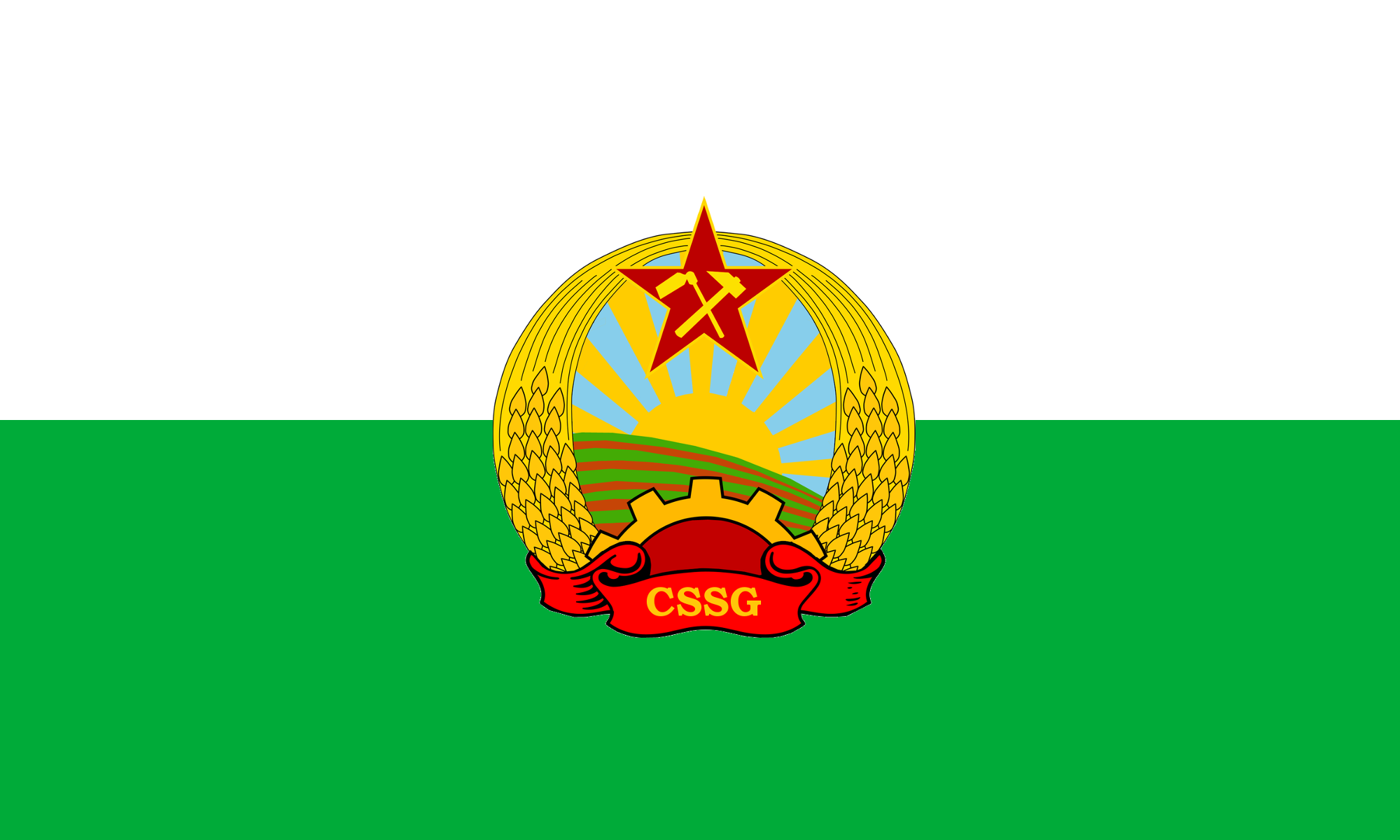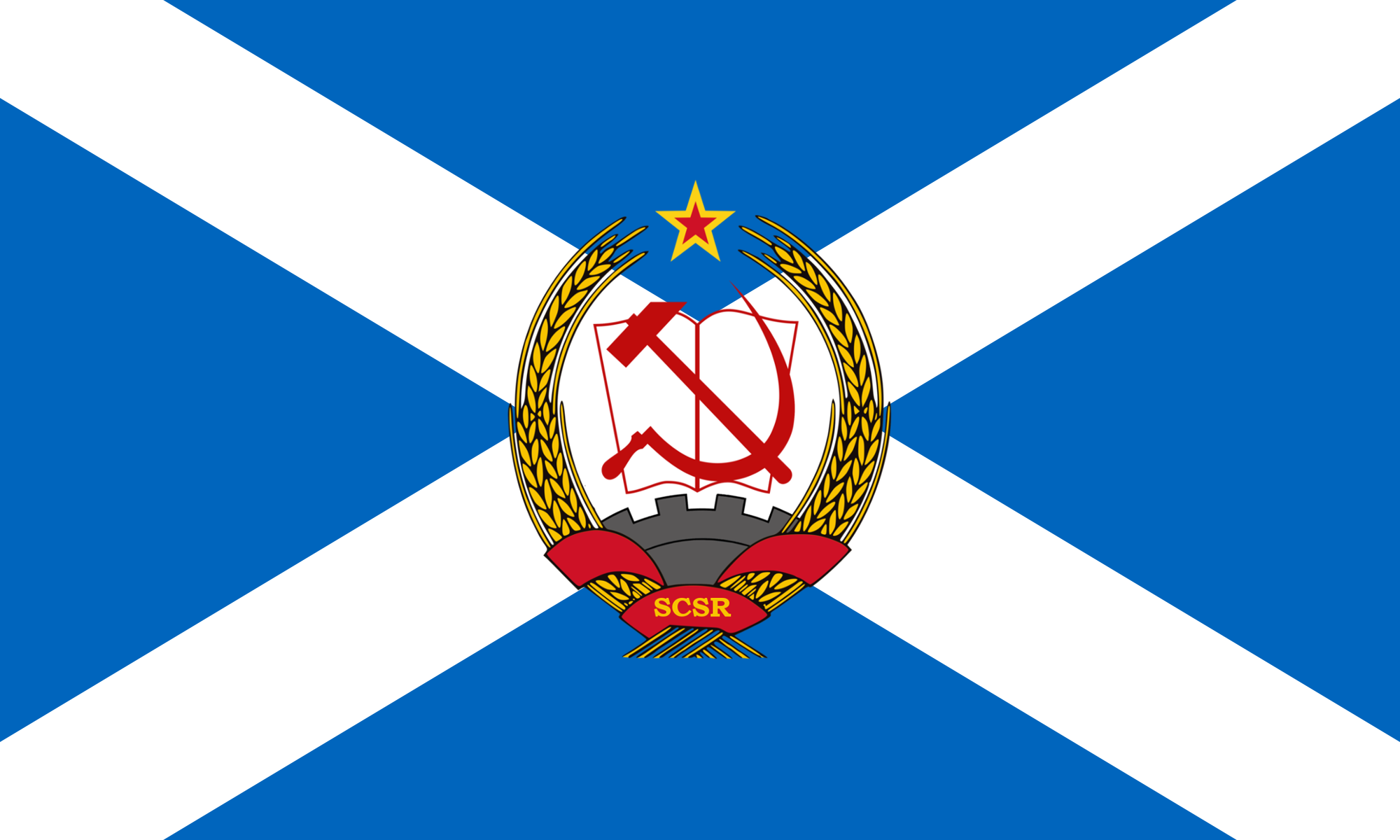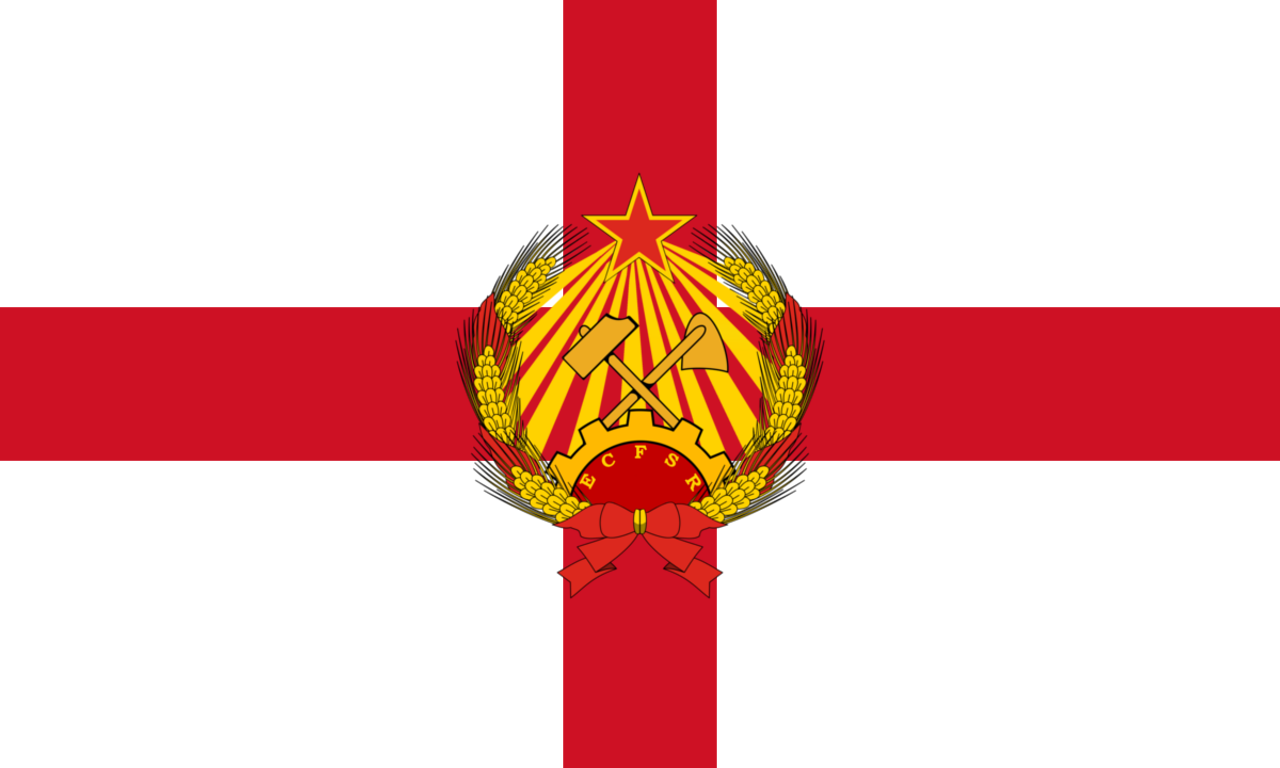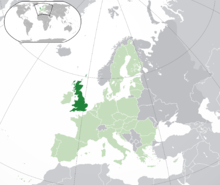Difference between revisions of "Chartist Federation"
| Line 107: | Line 107: | ||
===Federalisation of the Republics=== | ===Federalisation of the Republics=== | ||
==Geography== | ==Geography== | ||
| − | |||
==Politics== | ==Politics== | ||
| + | ===Administrative Divisions=== | ||
| + | Constitutionally, the FCSR is a federation of constituent Socialist Republics, which are all unitary states, apart from England which uses a federal system. With the constitution of 2019, the Channel Islands SFCR was dissolved, resulting in its constituent Guernsey and Jersey CSRs being elevated to Constituent Republics, while the Cornish CSR was split off from the English CFSR, resulting in the same status. Although all republics were equal under union law, the FCSR is inevitably dominated by the English CFSR which is largest, in both population and geography, as well as the strongest economically. For this reason, the Chartist Federation is commonly—but incorrectly—referred to as "England." | ||
==Economy== | ==Economy== | ||
==Demographics== | ==Demographics== | ||
==Society== | ==Society== | ||
Revision as of 06:24, 12 March 2015
| This page is a work in progress by its author(s) and should not be considered final. |
Federation of Chartist Socialist Republics |
||||||
|---|---|---|---|---|---|---|
|
||||||
| Motto: "United Forever in Friendship and Labour" | ||||||
| Anthem: "The Red Flag" | ||||||
The Chartist Federation in the European Union
|
||||||
| Region | Commonwealth of Communist Countries | |||||
| Capital and largest city | London | |||||
| Official languages | English a | |||||
| Recognised national languages | Scots, Welsh a | |||||
| Recognised regional languages | Scottish Gaelic, Cornish | |||||
| Demonym | Chartist | |||||
| Government | Federal Socialist Republic | |||||
| - | Chairperson of the All-Union People's Assembly de jure President |
 Robert Griffiths PA (CPB) Robert Griffiths PA (CPB) |
||||
| - | Chairperson of the Council of Ministers de facto Premierb |
 Gawain Hicks CM (RPP) Gawain Hicks CM (RPP) |
||||
| - | Director of the United Front Central Committee |  David Yaffe PA (RCG) David Yaffe PA (RCG) |
||||
| - | Procurator of the Federation |  Charlie Kimber (SWP) Charlie Kimber (SWP) |
||||
| Legislature | People's Parliament | |||||
| - | Upper house | Council of Ministers | ||||
| - | Lower house | All-Union People's Assembly | ||||
| Foundation | ||||||
| - | Republican Revolt | 8th March 2017 | ||||
| - | Provisional Government | 9th April 2017 | ||||
| - | British Revolution | 8th November 2017 | ||||
| - | Declaration of the Chartist Federation | 1st May 2018 | ||||
| - | Creation of the People's Charter | 7th January 2019 | ||||
| Area | ||||||
| - | Total | 230,539c km2 89,011 sq mi |
||||
| - | Water (%) | 1.30% | ||||
| Population | ||||||
| - | 2020 estimate | 62,512,000 | ||||
| - | Density | 255.6/km2 662/sq mi |
||||
| GDP (PPP) | 2020 estimate | |||||
| - | Total | £2.586 trillion | ||||
| - | Per capita | £41,535.50 | ||||
| GDP (nominal) | 2014 estimate | |||||
| - | Total | £3.037 trillion | ||||
| - | Per capita | £48,779.31 | ||||
| Gini (2014) | 0.243 low |
|||||
| HDI (2020) | 0.8929 very high |
|||||
| Currency | Chartist Pound ( CFP) (p) |
|||||
| Time zone | GMT (UTC+0) | |||||
| Date format | dd/mm/yyyy | |||||
| Drives on the | left | |||||
| Calling code | 44 | |||||
| ISO 3166 code | .CF | |||||
| Internet TLD | .cfb, .fcr | |||||
| a. | English is the official language of 5 Union Republics and is the official language of the State. English and Scots are official languages in Scotland, English and Welsh are official languages in Wales. English and Manx are official languages in the Isle of Man. The Regional languages of Scottish Gaelic and Cornish are protected by their local People's Communes. | |||||
| b. | The Chairperson of the Council of Ministers is known as the Premier due to their effective position as Head of Government | |||||
| c. | The land area given includes all 4 Union Republics, the Autonomous Union Republic and the City of London. | |||||
The Federation of Chartist Socialist Republics (also called the Chartist Federation, Britain, C.F., or F.C.S.R.) is a federal socialist republic comprising 4 constituent Republics, one federal district and an Autonomous Chartist Republic. Lying off the north-western coast of the European mainland, the country includes the island of Great Britain—a term also applied loosely to refer to the whole country-and many smaller islands, mostly to the North and West of Scotland. The FCSR does not share a land border with any other sovereign state.The FCSR is surrounded by the Atlantic Ocean to its west and north, the North Sea to its the east and the English Channel to its south. The Irish Sea lies between Great Britain and Ireland. The FCSR has an area of 88,715 square miles (229,767km2).
The Chartist Federation is the 22nd-most populous country in the world, with an estimated 62.2 million inhabitants. The country's capital is the City of London, governed as a federal district, an important global city with the second-largest urban area in Europe, and its metropolitan area is the largest in European Union, with a population of about 14 million. The FCSR consists of four constituent Republics: England, Scotland, Wales, and the Channel Islands. All of which are constitutionally and freely associated with the Federal government, and govern themselves with a large degree of power, based in their capitals, Leicester, Edinburgh, Cardiff and Peterport respectively. The Isle of Man is an Autonomous Chartist Republic with the Federal Government responsible for defence and international representation only.
The relationships among the countries of the Chartist Federation have changed over time. Wales was annexed by the Kingdom of England under the Acts of Union of 1536 and 1543. A treaty between England and Scotland resulted in a unified Kingdom of Great Britain in 1707, which in 1801, merged with the Kingdom of Ireland to form the United Kingdom of Great Britain and Ireland. In 1922, five-sixths of Ireland seceded from the country, leaving the United Kingdom of Great Britain and Northern Ireland. Following the Socialist Revolutions of the early 21st century in the Republic of Ireland and the United Kingdom, the remaining 6 counties were given sovereignty, and joined the Irish People's Republic in 2017. The FCSR has fourteen Overseas Territories. These are the remnants of the British Empire which, at its height in the 1920s, encompassed almost a quarter of the world's land mass and was the largest empire in history. British influence can be observed in the language and culture of many of its former colonies.
The Chartist Federation has its roots in the British Revolution which began on the 22nd August 2015, which overthrew the United Kingdom. The Majors, the majority faction of the Democratic Republican Party, led by Robert Streader, then led a second revolution which overthrew the provisional government and established the English Socialist Federative Chartist Republic, beginning a civil war between pro-revolution Reds and counter-revolution Whites. The Red Army entered several territories of the former United Kingdom, and helped local Communists take power through charters that nominally acted on behalf of workers and tenants. In 2018, the Communists were victorious, forming the Chartist Federation with the unification of the English, Channel Islander, Scottish, and Welsh republics.
The Chartist Federation is a developed country and has the world's sixth-largest economy by nominal GDP and tenth-largest by purchasing power parity. The country is considered to have a high-income economy and is categorised as very high in the Human Development Index. It was the world's first industrialised country and the world's foremost power during the 19th and early 20th centuries. The FCSR remains a great power with considerable economic, cultural, military, scientific, and political influence internationally. It is a recognised nuclear weapons state and its military expenditure ranks fifth or sixth in the world. The FCSR has been a permanent member of the United Nations Security Council since its first session in 1946. It was a member state of the European Union (EU) and its predecessor, the European Economic Community (EEC), since 1973, it left in 2017 following the formation of the Federation; it is also a member of the Commonwealth of Nations, the Council of Europe and the World Trade Organization (WTO). The precursor state-the United Kingdom-was a member of the G7, the G8, the G20, the Organisation for Economic Co-operation and Development (OECD), however the new socialist government left these groups accusing them of economic elitism and bourgeois ideologies.
Contents
Etymology and Terminology
The Acts of Union 2017 united the English Chartist Federative Socialist Republic and the Scottish, Welsh and Manx Chartist Socialist Republics, forming the Federation of Chartist Socialist Republics, also known as the Chartist Federation, or abbreviated to the FCSR. Although the Chartist Federation, as a sovereign state, is a country, England, Scotland, Wales, and the Isle of Man, are also regarded as countries, though they are not sovereign states. Scotland, Wales and the Isle of Man have devolved self-government, whereas England has power devolved to it's regions and constituent nations. Some statistical summaries, such as those for the twelve NUTS 1 regions of the FCSR, also refer to Scotland, Wales and Northern Ireland as "regions".
The term Britain is often used as synonym for the Chartist Federation. The term Great Britain, by contrast, refers conventionally to the island of Great Britain, or politically to England, Scotland and Wales in combination. However, it is sometimes used as a loose synonym for the Chartist Federation as a whole. GB and GBR are the standard country codes for the Chartist Federation and are consequently used by international organisations to refer to the Chartist Federation. Additionally, the Chartist Federation's Olympic team competes under the name "Great Britain" or "Team GB".
The adjective British is commonly used to refer to matters relating to the Chartist Federation. The term has no definite legal connotation, but is used in law to refer to FCSR citizenship and matters to do with nationality. People of the Chartist Federation use a number of different terms to describe their national identity and may identify themselves as being British; or as being English, Scottish, Welsh, Manx, or Cornish; or as being both.
History
The last British Queen, Elizabeth II, ruled the United Kingdom until her abdication in March 2017 in the aftermath of the British Revolution, due in part to the strain of the Second Great Recession, which had turned public support against the monarchy. A short-lived British Provisional Government took power, to be overthrown in the Second British Revolution, on November 5th, by revolutionaries led by the Revolutionary leader Robert Streader.
The Chartist Federation was officially established in May 1918 with the union of the English, Scottish, Welsh, and Manx Chartist republics, each ruled by local Impossiblist parties. Despite the foundation of the Chartist state as a federative entity of many constituent republics, each with its own political and administrative entities, the term "Chartist England" – strictly applicable only to the English Federative Socialist Republic – is often applied to the entire country by non-Chartist writers and politicians.
Economic Crisis
Revolution
Establishment
Federalisation of the Republics
Geography
Politics
Administrative Divisions
Constitutionally, the FCSR is a federation of constituent Socialist Republics, which are all unitary states, apart from England which uses a federal system. With the constitution of 2019, the Channel Islands SFCR was dissolved, resulting in its constituent Guernsey and Jersey CSRs being elevated to Constituent Republics, while the Cornish CSR was split off from the English CFSR, resulting in the same status. Although all republics were equal under union law, the FCSR is inevitably dominated by the English CFSR which is largest, in both population and geography, as well as the strongest economically. For this reason, the Chartist Federation is commonly—but incorrectly—referred to as "England."



